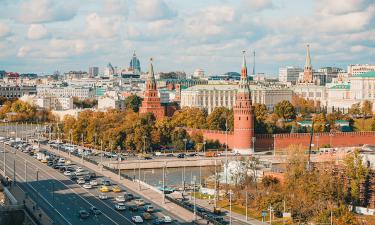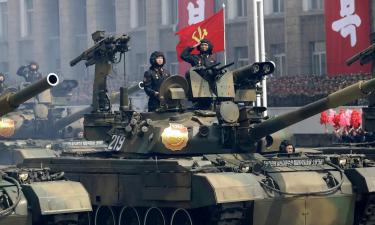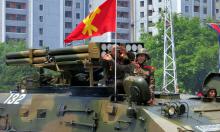Negotiations Between Vladimir Putin And George W. Bush In Shanghai To Define Nature Of Russian President's Visit To U.S.
Russian President Vladimir Putin and U.S. President George W. Bush will hold a bilateral meeting Sunday in Shanghai. The meeting will take place within the framework of the summit of the Asia Pacific Economic Cooperation (APEC) member-states in Shanghai, the industrial capital of China. Russian-American working contacts at this level have long ago become a routine part of international forums. However, the current negotiations in Shanghai may define the overall tone of Vladimir Putin's visit to the U.S., scheduled for mid-November. Initially, is was expected that the meeting between the two leaders - first in a small group, and later in an enlarged format - would be held at a Shanghai hotel with a symbolic name of the Peace Hotel. However, according to RIA Novosti, at the request of the American side, the venue of the meeting was changed to George Bush's residence in the Portman Ritz-Carlton Hotel. RIA Novosti learned from sources in the American delegation in Shanghai that Mr. Bush intends to thank Mr. Putin for the role Russia is playing in the fight against international terrorism. Both Washington and Moscow assume that the closeness in two countries' positions on this issue creates favorable conditions for solving many other problems that affect interests of both states. At the same time, Mr. Bush told journalists Saturday in Shanghai that it is incorrect to "expect astonishing news other than that we continue our dialogue" from his upcoming meeting with Mr. Putin. Experts believe that differences and a lack of complete understanding will remain in many important issues, i.e. the U.S. plans to create a national missile defense system. Washington is trying to convince the world that the September 11 terrorist attacks justify the creation of a national missile defense system. Moscow holds the directly opposite stance. According to Russian experts, the methods, which terrorists used, once again demonstrated the complete senselessness of the idea to wreck the current regime of maintaining strategic stability, or the 1972 ABM Treaty. Sources in the Russian delegation also do not rule out that at the negotiations Mr. Putin and Mr. Bush will discuss the situation in Abkhazia, which has recently aggravated. The RIA Novosti sources highlight that Russia is ready to implement the decision of the CIS summit in Minsk, under which the mandate of the peacekeeping mission is extended to December 31, 2001. Russia is also willing to consider other forms of participation in the conflict settlement if need be. At the same time, Russian representatives believe that Abkhazia currently might be an "inconvenient" topic for the U.S., as the transfer of Georgian and Chechen militants from the Pankisi Gorge to Abkhazia occurred immediately after Eduard Shevardnadze's visit to Washington. In the opinion of the Russian military officials, this is nothing else but an attempt by the Georgian leadership to avoid accusations of supporting terrorists and simultaneously escalate the situation in area of the self-proclaimed Republic of Abkhazia. Among other issues that might be addressed at the Bush-Putin meeting in Shanghai, the Russian representatives named the unfounded - in Moscow's view - Washington's anti-dumping procedures based on the well-known Jackson-Vanik amendment.
Subscribe to Pravda.Ru Telegram channel, Facebook, RSS!




